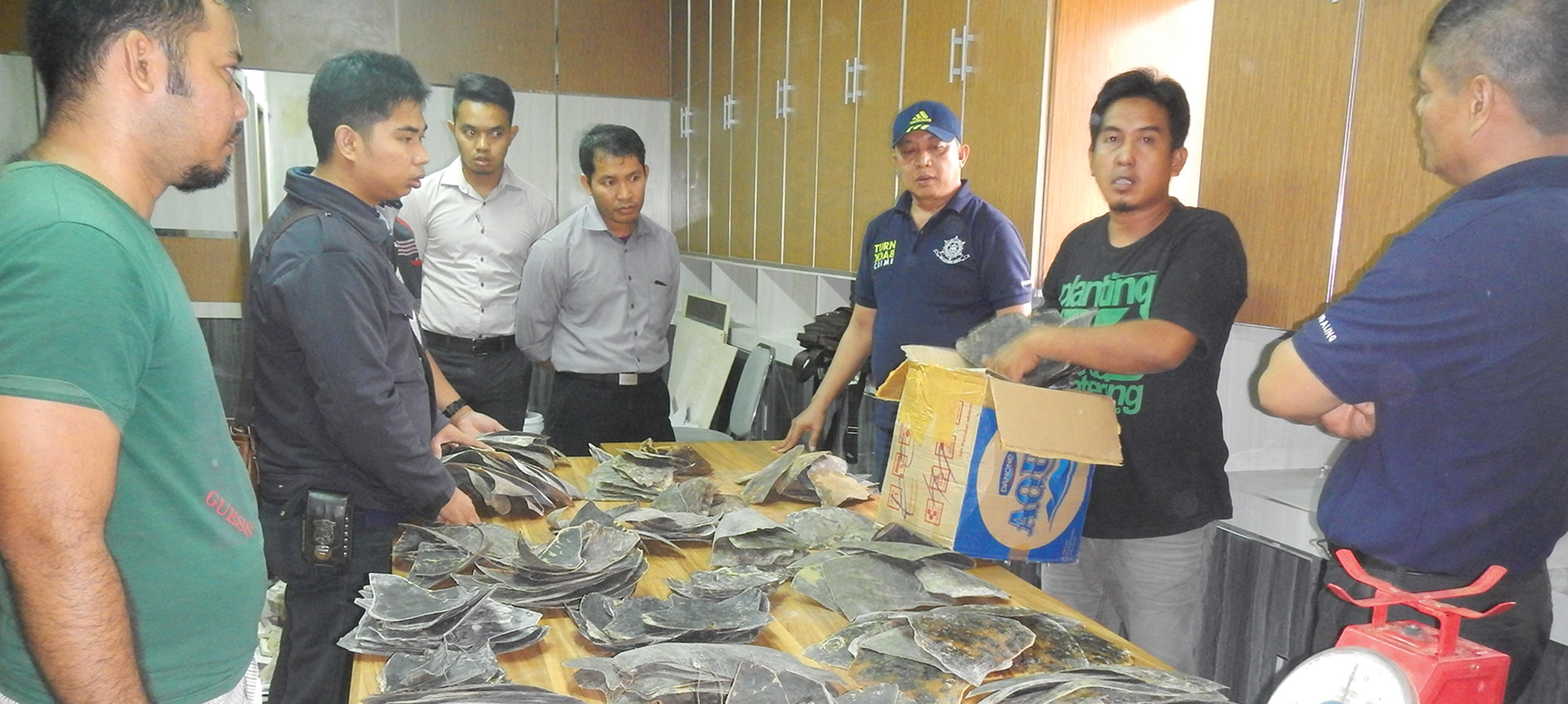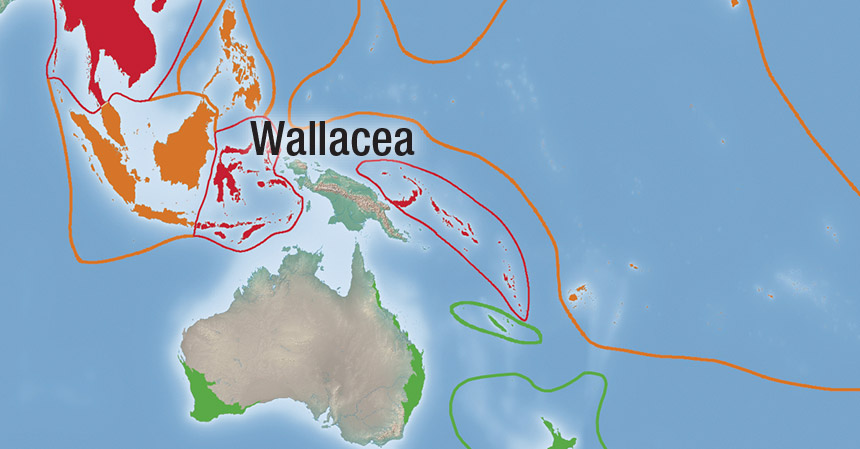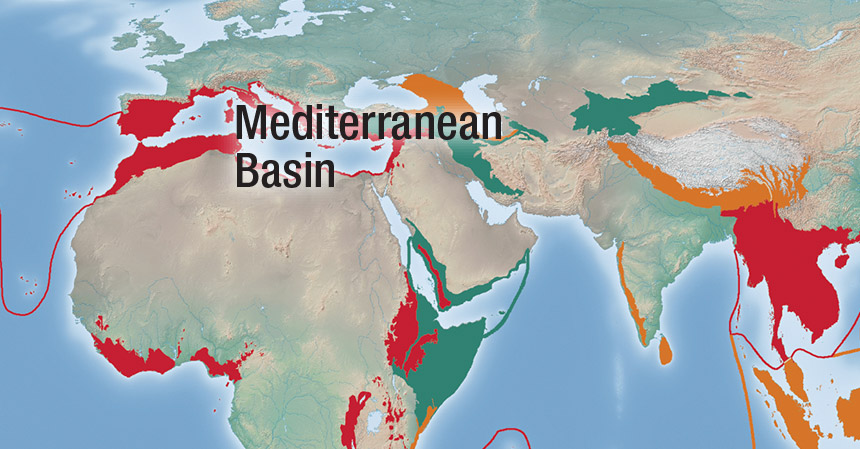Conserving Species
CEPF support allowed the Wildlife Crimes Unit to increase efforts to recruit informants, and detect wildlife trafficking, and to increase the potential for arresting suspects, enabling collaboration among law enforcement. Most importantly, CEPF is helping Indonesia to protect magnificent Wallacea species through the Wildlife Crimes Unit.
Biodiversity conservation is the core of CEPF’s work. The amazing array of species in the world’s biodiversity hotspots has an intrinsic value, but is also critical to maintaining healthy ecosystems that people rely on for food, fresh water, fuel, medicines, climate change mitigation and more. The efforts of CEPF grantees to protect and learn more about species benefit us all.
Wallacea Biodiversity Hotspot
In Indonesia, the wildlife trade is decimating species populations and endangering the ecosystems where they live. The country is the largest supplier of wildlife products in Asia. Virtually countless exit and entry points from more than 17,000 islands make guarding source sites and borders difficult. Trade routes that lead from or pass through the region are controlled by both local people and organized criminal groups, some of whom have migrated to Indonesia in search of high-value species.
With support from a CEPF grant, the Wildlife Conservation Society (WCS) expanded its Wildlife Crimes Unit into the Wallacea Biodiversity Hotspot, specifically Indonesia’s North Sulawesi and Nusa Tenggara Timur provinces. WCS has experience and expertise in safely and effectively dismantling large, complex trafficking and trade networks around the world.
By focusing on the hubs where illegal wildlife and products are collected before being moved, either around or out of the country, the Wildlife Crimes Unit disrupts the illegal wildlife supply chain by targeting high-level middlemen, traders and dealers as opposed to opportunistic and subsistence hunters and fishermen from local communities.
Through well-trained informants, the crime unit gives information to local law enforcement agencies that results in arrests, and provides expert support to assist in prosecutions. WCS is working to build the capacity of local law enforcement agents so that they are better able to take over investigating and prosecuting the perpetrators of illegal wildlife trade after the completion of the project. WCS also works with Indonesian journalists to ensure that information about high-profile cases is disseminated to increase public awareness.
Through the project, strategic sting operations saved hundreds of animals—parrots, hornbills, manta rays and whale sharks among them. WCS-supported efforts by local law enforcement have resulted in the arrest of 27 people suspected of wildlife poaching, trading and smuggling.
“During the CEPF project, our efforts to conduct arrests with the officers [have] increased five times,” said WCS Wildlife Trade Manager Dwi Adhiasto.
Mediterranean Basin Biodiversity Hotspot
The northern bald ibis (Geronticus eremita) is one of the most threatened species in the world. Although the species was once likely spread across the Middle East and North Africa, there is now only one viable population of the Critically Endangered species, located in southern Morocco. Recognizing the importance of this last stronghold, Parc National de Souss-Massa (PNSM) and a neighboring biological and ecological protected area at the mouth of the Tamri River were, in part, created to help save the species. These efforts worked—the population size has increased to approximately 600 individuals and the species is expected to expand its range to new areas, likely chosen from those it had historically occupied.

With this in mind, Groupe de Recherche pour la Protection des Oiseaux au Maroc (GREPOM), in collaboration with PNSM, conducted a CEPF-funded study to map the distribution of the ibis by habitat type. The organization Noé Conservation, a former CEPF grantee, provided technical support.
“With this project, we were able to diagnose the ecological preferences of the Moroccan northern bald ibis population and to pinpoint the main threats to its survival,” GREPOM’s Mohamed Dakki said. These threats include illegal building and disturbance close to the birds’ breeding cliffs, and changes in farming—including increased use of pesticides—on the feeding grounds.
Following a workshop discussion attended by experts and government officials, project participants proposed priority management measures to promote increasing the species’ range. These measures will form the basis for further conservation action, led by the government of Morocco.
Photo Credits
Sea turtle shells confiscated in Makassar, South Sulawesi, Indonesia. © Wildlife Conservation Society
Pair of northern bald ibises, Morocco. © Olivier Langrand






